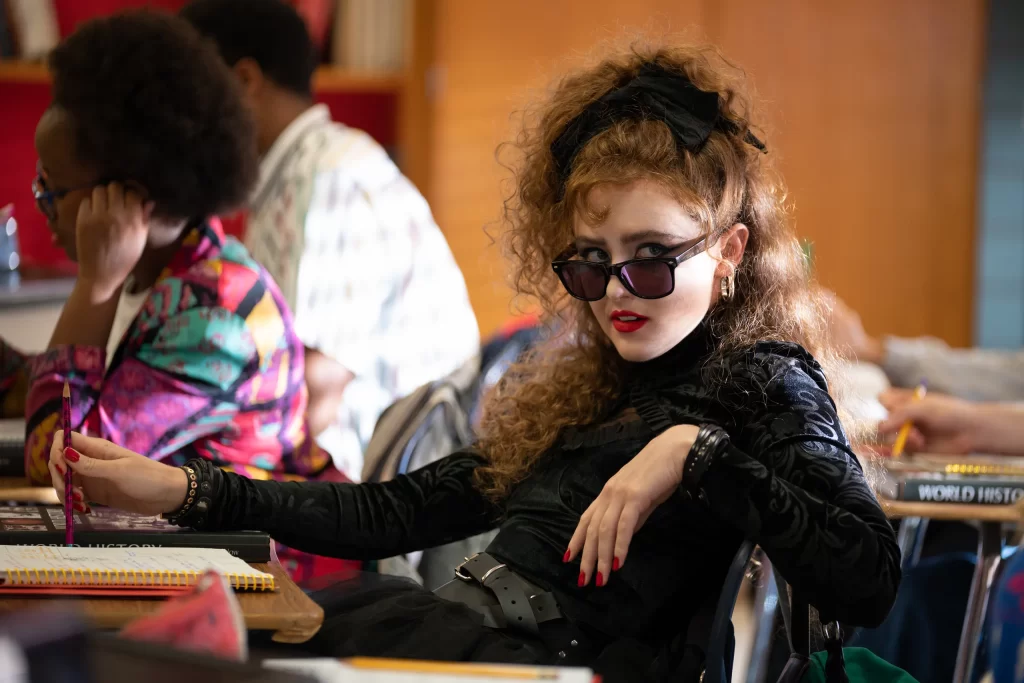
Diablo Cody and the ’80s: match made in cinematic heaven, or ungainly fit? Despite a varied and underrated screenwriting career (Tully, Ricki and the Flash), Cody remains best known for her opening one-two punch of Juno and Jennifer’s Body, which instantly established her polarizing style: pithy wordplay, obvious themes, and referential characters who seem to know they’re living in a movie. The heightened quality of her writing would appear to make her a natural match for the era that brought us John Hughes and synth pop. What’s strange about Lisa Frankenstein is that it neither sends up classic ’80s teen flicks nor pays loving tribute to them. It seems to be set in 1989 for no other reason than to justify its kickass soundtrack.
Which is fine, as far as it goes. I’m skeptical that Lisa Frankenstein will earn the same cult following that Jennifer’s Body did—certainly it won’t send adolescent boys scurrying to the internet in search of “megan fox amanda seyfried kiss scene”—but it is at least a vibrant and playful production. The feature directorial debut of Zelda Williams (working from a script by Cody), it sports bright colors, cool music, and an array of outfits so dazzling, they’d make Cher from Clueless jealous. The movie is not without significant flaws—uneven dialogue, awkward staging, a general aimlessness—yet it offers the robust built-in defense of, “Sure, but did you see her hair?”
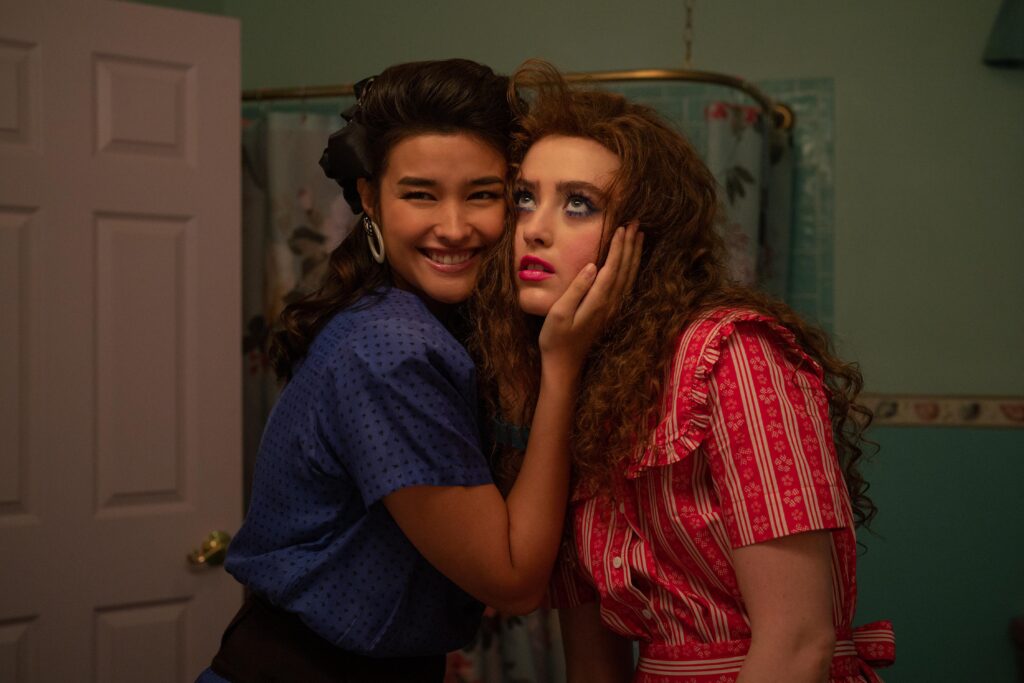
The blown-out curls in question belong to Lisa (Kathryn Newton), who opens the picture as a typically Hughesian heroine: meek, wide-eyed, socially insignificant yet flush with potential. Beyond the usual clichéd clumsiness (it’s amazing she isn’t wearing dorky glasses), Lisa’s unease stems from a particularly morbid place; shortly before the film begins, her mother was killed in a home invasion by an axe murderer, the kind of masked maniac who seems to have stumbled out of a different ’80s horror franchise.
Williams reveals that traumatic event in a brief flashback that unfolds with curious indifference, as though she’s disinclined to invest it with any genuine menace or suspense. Yet even if her table-setting can be perfunctory, she and Cody exhibit skill in establishing their characters, who possess the depth of a sheet of wallpaper. (Also efficient: the gorgeous title sequence, which distills a tale of love and loss into a beautiful piece of 2-D black-and-white animation.) It takes little time, for example, to discern that Lisa’s new stepmother, Janet (a vampy Carla Gugino), is an evil shrew; all you need is to see her snarl the line, “Nobody coddled me when my father got blown up in Da Nang.”
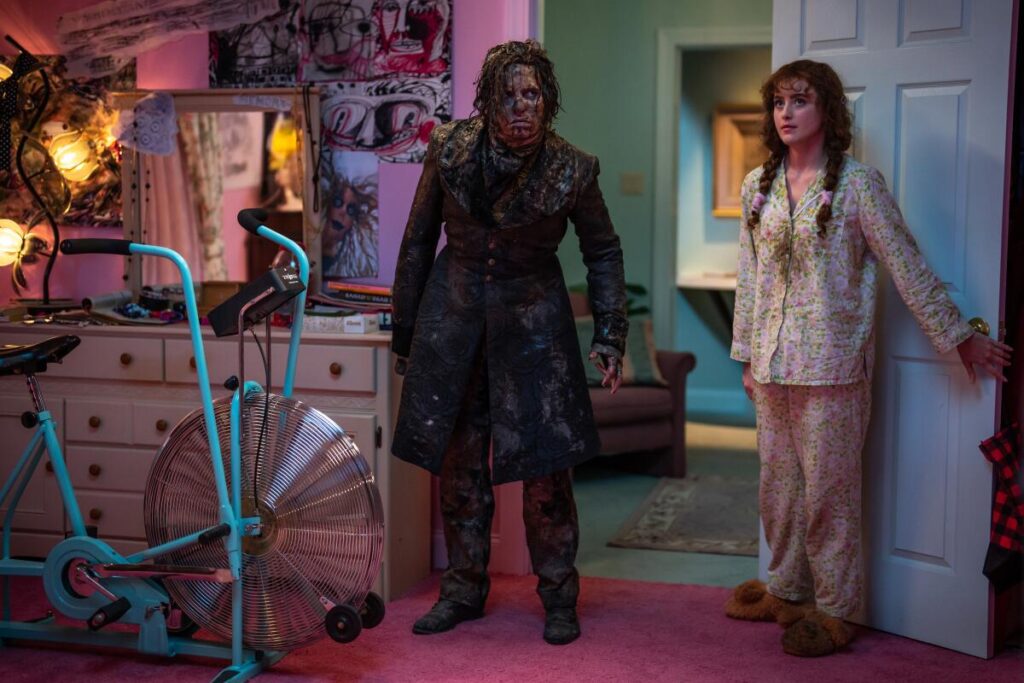
Have no fear, Janet will get what’s coming to her, Rocky Horror reference and all. In one sense, Lisa Frankenstein operates as a revenge picture; its timid hero’s inevitable rise in confidence coincides with her meting out justice to the villains who have wronged her. The instrument of her transformation arrives, quite literally, on her doorstep, when a freshly reanimated corpse (Cole Sprouse) crashes into her house and declares, “I vant to suck your blood!”
Whoops, sorry, wrong horror trope. In fact, this Creature (as Frankenstein scholars know to call him) doesn’t speak at all, instead communicating via grunts, moans, and eye-rolls. Yet Lisa, who appears to have summoned him from a nearby graveyard through the magic of Shelley’s poetry, senses an instant kinship with him, despite his worm-infested skin and revolting stench. That his resurrection is corporeally incomplete is but a minor problem—one that can be solved through a combination of seduction, dismemberment, and a tanning bed.
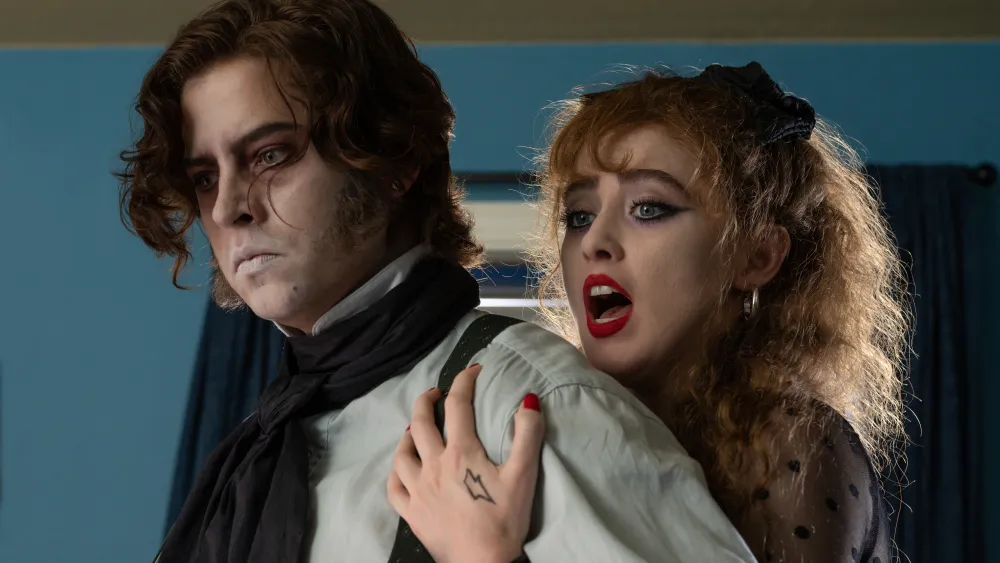
Yes, Lisa Frankenstein is a comedy in which a fresh-faced virgin restores her beloved’s virility by severing sundry body parts from her wicked enemies—all in the desperate hope that she might know carnal pleasure before she dies. This is, of course, a very silly idea, but its execution isn’t quite silly enough, lacking in inspired mayhem. Williams showcases a strong eye, but her set pieces tend to mimic the Creature’s gait, moving at a lurch rather than a glide; most of the movie’s ostensibly big scenes—Lisa’s initial encounter with the Creature, a piece of farce where he evades detection from the oblivious Janet, a frantic killing at a cemetery—lumber confusedly, without achieving any payoff. (For her part, Cody’s script is oddly light on zingers, though it does deliver a few clever reveals.) The exception is a late slow-motion sequence where Williams at last synchronizes image and sound, as blood and music soar simultaneously.
If Lisa Frankenstein struggles to capitalize on its demented potential, it at least affords a pleasant time in the company of talented actors. Like most women cast as teenage wallflowers in Hollywood productions, Newton (who just turned 27) is far too attractive for Lisa’s initial unpopularity to be credible, but she sells the title character’s transformation from hopeless waif to devil-may-care goth with gusto. (“Is that sherry?” asks her father, aghast upon seeing her swigging from a bottle at the breakfast table. “No,” she replies with deadpan annoyance, “it’s Lisa.”) She and Sprouse also develop a cute chemistry, as his stunted groans and her intuitive interpretations turn into their own love language. Commendation must also be paid to Liza Soberano, who plays Lisa’s queen-bee stepsister; that role is destined to be stock, but Soberano imbues it with a sincere enthusiasm and sweetness, threatening to create a fully realized character.
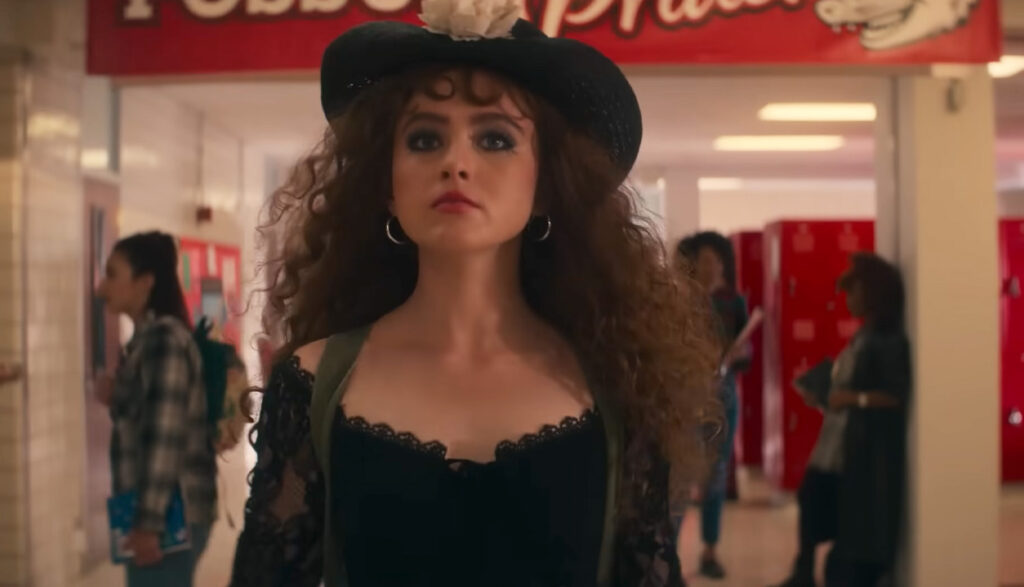
And then there are the clothes. It might seem strange that a movie about a vengeful teenager who butchers her adversaries would pause for multiple Pretty Woman-style montages of people donning various outfits, but Lisa Frankenstein’s wardrobe more than merits the interludes. (The Creature’s shirts invariably highlight period-appropriate bands such as Joy Division and Violent Femmes, while Lisa discovers the suggestive power of stockings and sunglasses.) This arguably reflects Williams prioritizing style over substance, yet watching a newly self-assured Lisa stride through the halls in a lacy black gown and matching blossom hat, you realize that such brazen flair compensates for a whole lot. Lisa may be cosplaying as Dr. Frankenstein, but what really comes alive is her sense of fashion.
Grade: B-
Jeremy Beck is the editor-in-chief of MovieManifesto. He watches more movies and television than he probably should.
